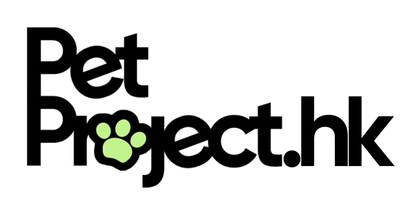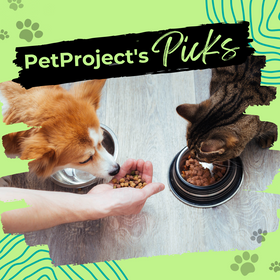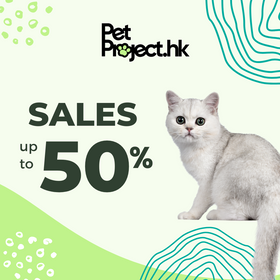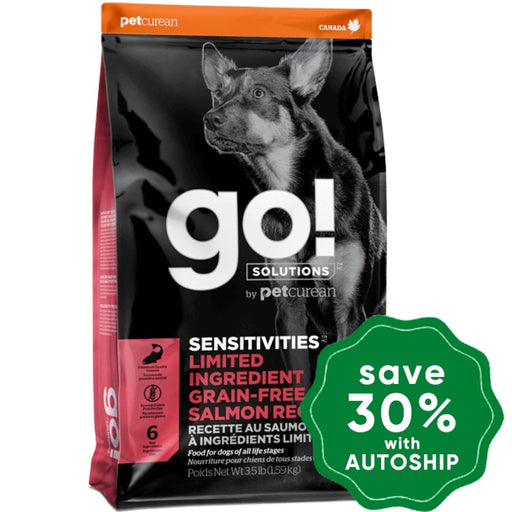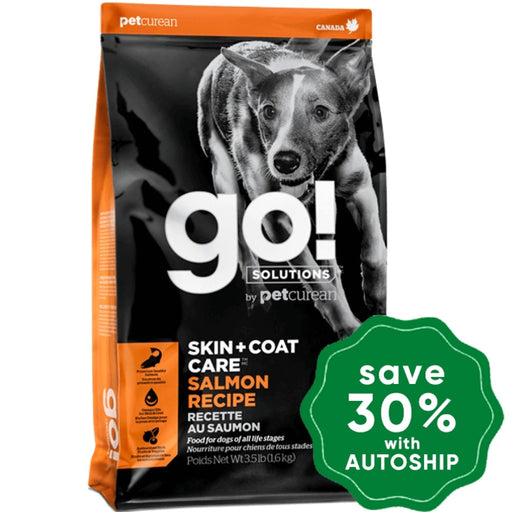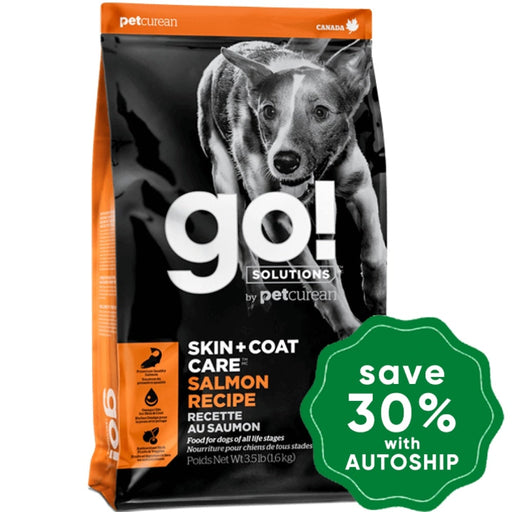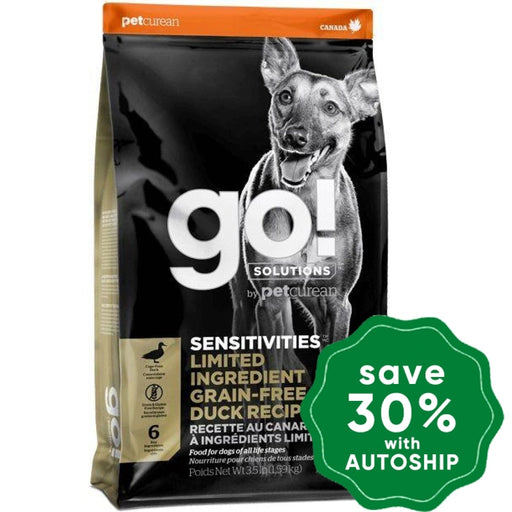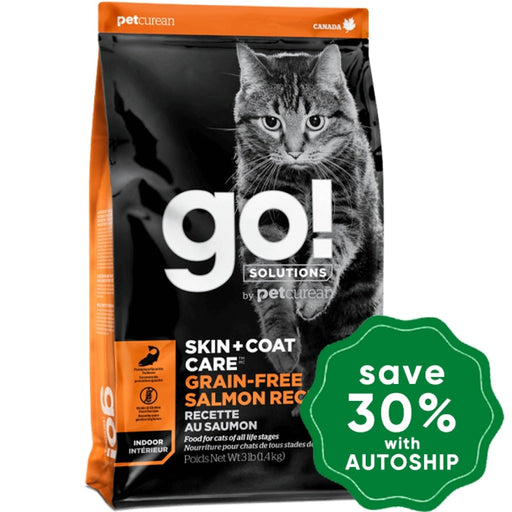GO! SOLUTIONS - CARNIVORE Dry Food for Senior Dog - Grain Free Chicken, Turkey + Duck Recipe - 22LB
Give your elder furry friend a diet packed with protein with Go! Solutions Carnivore Grain-Free Chicken, Turkey + Duck Senior Recipe Dry Dog Food! This food contains 100% fresh chicken, turkey, trout, duck and salmon, as well as premium quality chicken, turkey, salmon, duck and herring meals. This grain-free recipe provides complete and balanced nutrition including fruits and veggies, with antioxidants to support immune system function. With no by-product meals, added growth hormones, artificial preservatives, wheat, corn or soy, you can feel confident feeding your old pup a diet that will keep him going strong.
Key Benefits
- Made with 100% fresh meat and premium quality meals.
- Included fruits and veggies provide antioxidants to support immune system function.
- Added green mussels and glucosamine/chondroitin support hip and joint health.
- Probiotics and prebiotic fiber promote healthy gut bacteria and good digestion.
- Contains taurine, which aids the vision and heart health of your pup.
Ingredients
Chicken Meal, Turkey Meal, Salmon Meal, De-Boned Chicken, De-Boned Turkey, De-Boned Trout, Potatoes, Peas, Tapioca, Lentils, Chickpeas, Pea Fiber, Chicken Fat (Preserved With Mixed Tocopherols), Duck Meal, Natural Chicken Flavor, Whole Dried Egg, Apples, Herring Meal, Flaxseed, Salmon Oil, Alfalfa, De-Boned Duck, De-Boned Salmon, Sweet Potatoes, Potassium Chloride, Pumpkin, Carrots, Bananas, Blueberries, Cranberries, Broccoli, Blackberries, Squash, Papayas, Pomegranate, Glucosamine Hydrochloride, Dried Chicory Root, Dried Lactobacillus Acidophilus Fermentation Product, Dried Enterococcus Faecium Fermentation Product, Dried Aspergillus Oryzae Fermentation Extract, Dried Bacillus Subtilis Fermentation Extract, L-Carnitine, Choline Chloride, Vitamins (Vitamin A Supplement, Vitamin D3 Supplement, Vitamin E Supplement, Niacin, L-Ascorbyl-2-Polyphosphate (A Source Of Vitamin C), D-Calcium Pantothenate, Thiamine Mononitrate, Beta-Carotene, Riboflavin, Pyridoxine Hydrochloride, Folic Acid, Biotin, Vitamin B12 Supplement), Minerals (Zinc Proteinate, Iron Proteinate, Copper Proteinate, Zinc Oxide, Manganese Proteinate, Copper Sulphate, Ferrous Sulphate, Calcium Iodate, Manganous Oxide, Selenium Yeast), Sodium Chloride, Taurine, New Zealand Green Mussels, Yucca Schidigera Extract, Chondroitin Sulphate, Dried Rosemary, Green Tea Extract, Peppermint, Parsley, Rosehips, Zedoary, Dandelion, Chamomile, Ginger, Fennel, Turmeric, Juniper Berries, Licorice, Marigold Extract, Cardamom, Cloves.
Caloric Content
3,756 kcal/kg, 394 kcal/cup
Feeding Instructions
| Weight | Weight Loss Daily Feeding (cup) | Weight Maintenance Daily Feeding (cup) |
|---|---|---|
| 2 - 5 LBS | 1/8 - 1/3 | 1/8 - 3/8 |
| 5 - 10 LBS | 1/3 - 1/2 | 3/8 - 2/3 |
| 10 - 20 LBS | 1/2 - 7/8 | 2/3 - 1 1/4 |
| 20 - 30 LBS | 7/8 - 1 1/3 | 1 1/4 - 1 2/3 |
| 30 - 50 LBS | 1 1/3 - 1 7/8 | 1 2/3 - 2 1/8 |
| 50 - 70 LBS | 1 7/8 - 2 1/2 | 2 1/8 - 3 1/4 |
| 70 - 90 LBS | 2 1/2 - 3 | 3 1/4 - 3 1/2 |
| 90 - 110 LBS | 3 - 3 1/2 | 3 1/2 - 4 1/8 |
| 110 - 140 LBS | 3 1/2 - 4 | 4 1/8 - 4 7/8 |
The amount of food your cat needs will vary depending on breed, activity level, age and climate. Use our feeding chart as a guide, adjusting the quantity fed to achieve your cat's ideal weight. We suggest feeding twice a day. Provide fresh, clean water at all times. Regular exercise will help maintain a healthy body weight. Love, attention and tummy rubs should be given freely, as often as possible.
It’s important to slowly transition your pet to a new food so their system has a chance to adapt to the change. The transition period should be at minimum, 10 days and could take upwards of 2 weeks, depending on your pet’s sensitivity to change. On day one, introduce 10% new food / 90% old food. Keep the food at this ratio for 2 or more days. Next, increase the ratio to 20% new food / 80% old food for 2 or more days. Repeat increasing in increments of 10% until you’re feeding 100% of the new food. If your pet experiences any kind of digestive upset during this time, try slowing down the process to let his/her digestive tract adjust to the new food. Some vomiting and/or diarrhea can be normal when introducing new foods as the digestive process and the naturally occurring bacteria your pet’s body requires is a complex and delicate system. If you experience any vomiting and/or diarrhea, be sure to reduce the amount of new food the next time you feed and overall, slow the whole transition period down even more.
